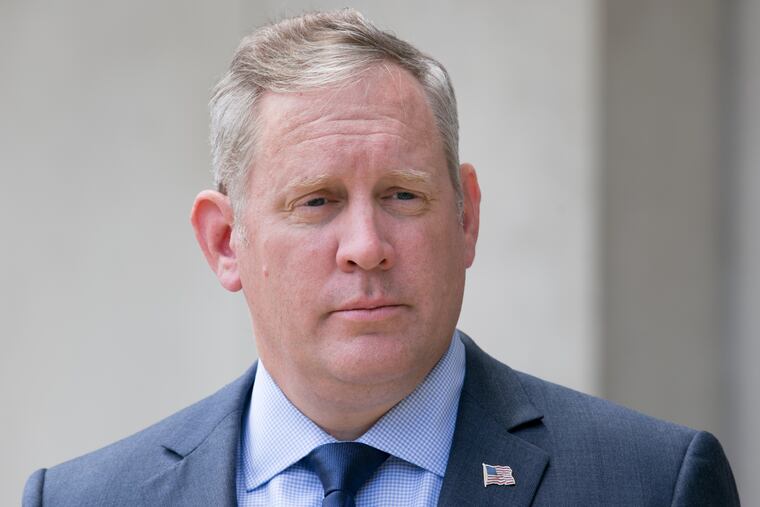Philly Police homicide captain transferred
Capt. John Ryan, who had led the unit since July 2017, is leaving the unit effective Friday, said department spokesperson Jeff Chrusch.

The commanding officer of the Philadelphia Police Department’s Homicide Unit has been reassigned, capping a year in which the city’s annual homicide total reached its highest level in more than a decade and the proportion of arrests in homicide cases remained below 50 percent.
Capt. John Ryan, who had led the unit since July 2017, is leaving the unit effective Friday, department spokesperson Jeff Chrusch said Thursday. The move is “one of several command changes that have happened over the past several weeks,” he said.
Chrusch did not specify any reasons behind the decision to move Ryan, or say who would replace him. Four sources with knowledge of the decision said that the new commander would be Capt. Jason Smith from the Major Crimes Unit, and that Ryan would move to that unit as part of the shake-up.
Neither Ryan nor Commissioner Richard Ross responded to requests for comment Thursday night.
The move comes at the end of a year in which the city has recorded more homicides than in any year since 2007, when 391 people were killed. Officials have said that a surge in drug-related killings has contributed to the spike. The number of homicides this year in which drugs have been considered the primary motive is almost double the number of drug-related killings last year, according to police statistics.
Perhaps more significant for Ryan — who oversaw a unit dedicated to solving murders — the unit’s clearance rate, or the percentage of cases considered “closed” by arrest or other means, was about 44 percent this year, police statistics show. Last year, the rate was about 42 percent, and both years followed a steady decline in the clearance rate since 2012 and 2013, when it had topped 70 percent each year.
The Inquirer and Daily News this month reported that some veteran investigators complained that their overtime was being cut, stunting their ability to solve cases. Ross and Ryan each disputed those claims, saying that overtime reductions had not hurt investigations. Ross said at the time: “All [Ryan] is asking for is for people to justify what they are doing.”
Earlier this month, 11 new detectives were added to the unit, bringing its total number of detectives to about 60.